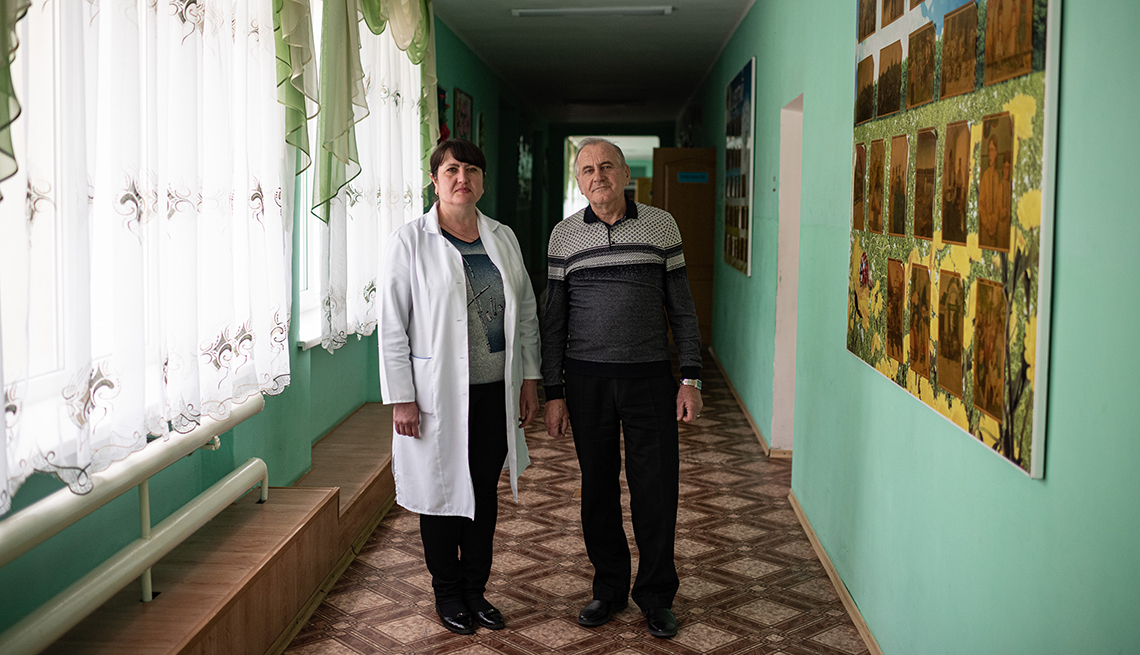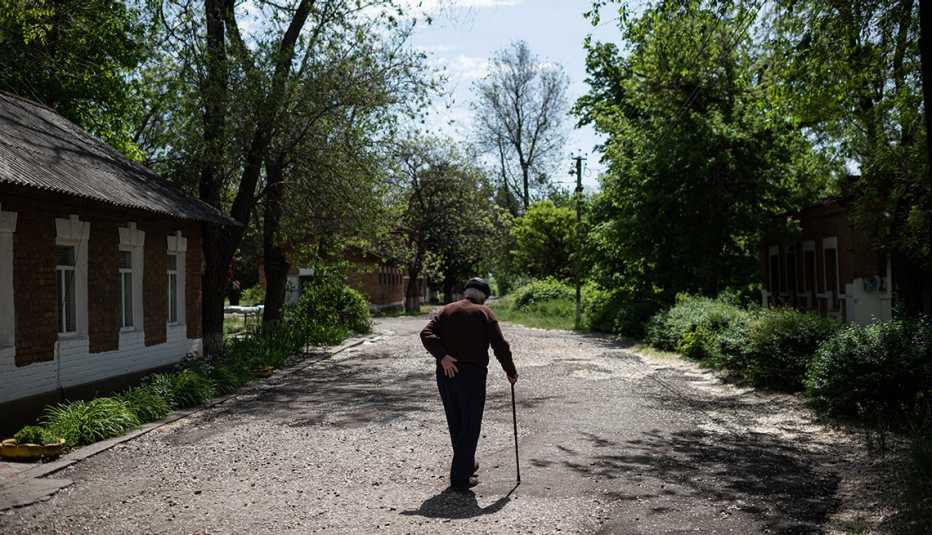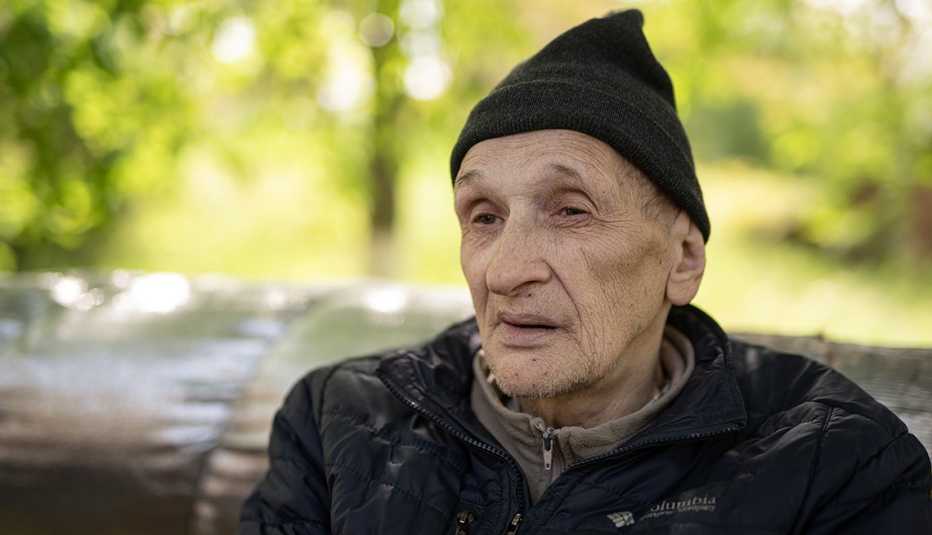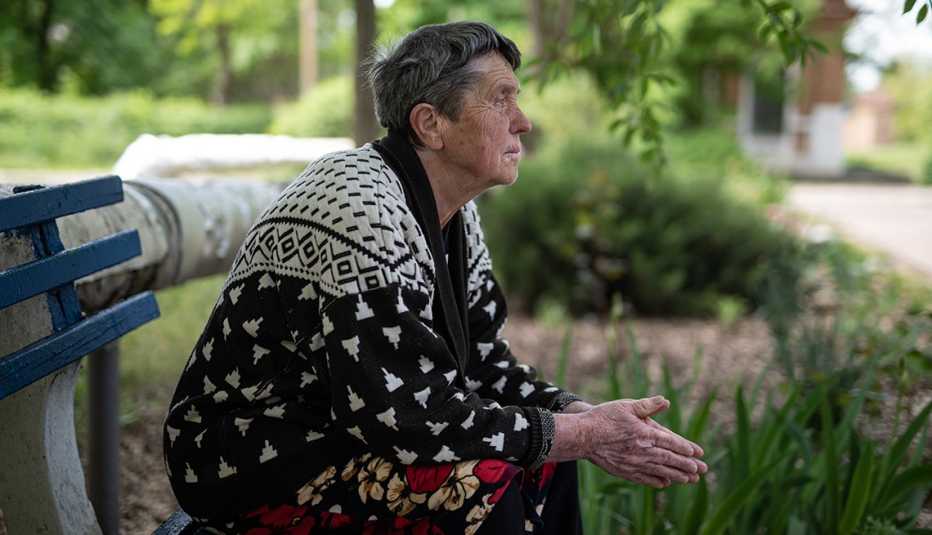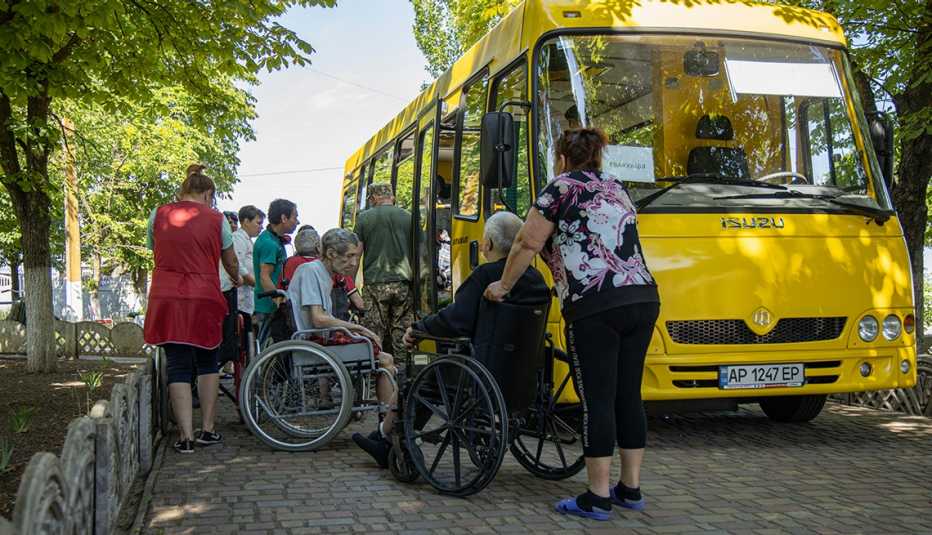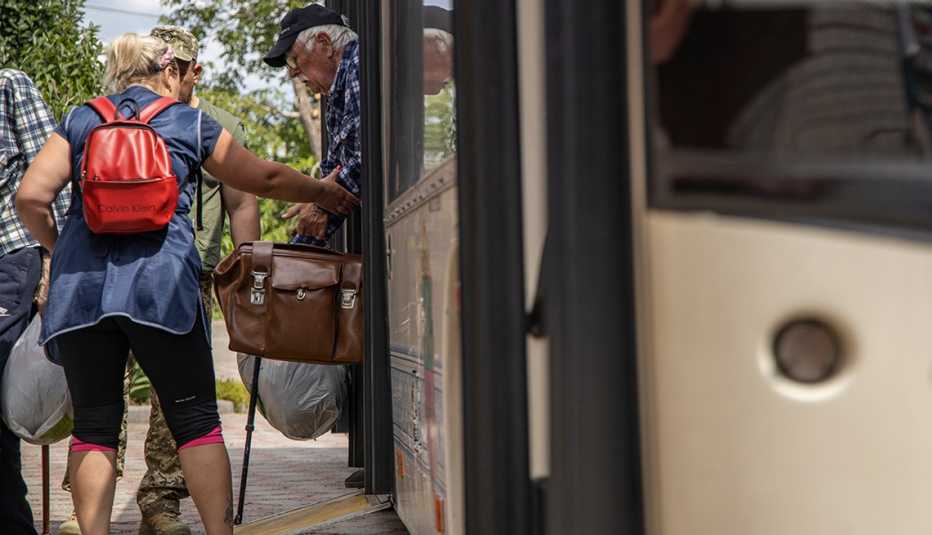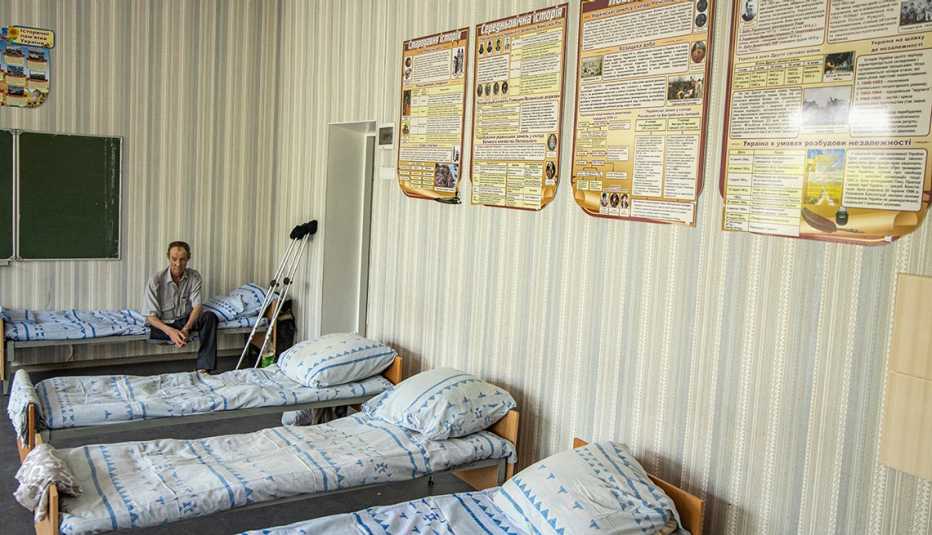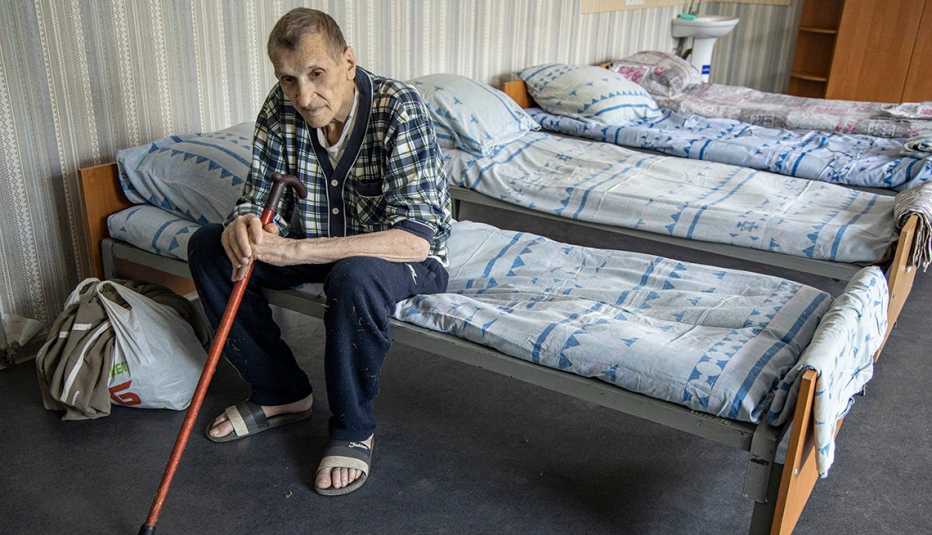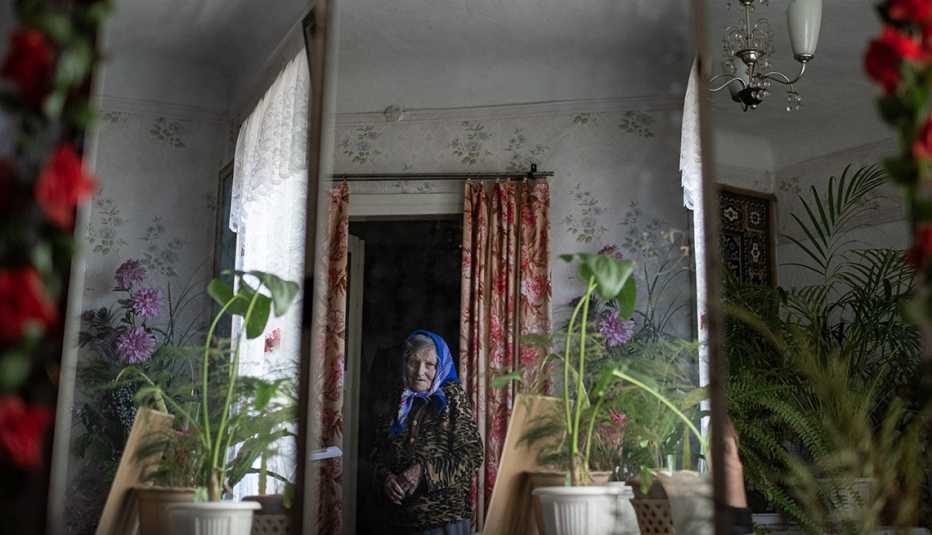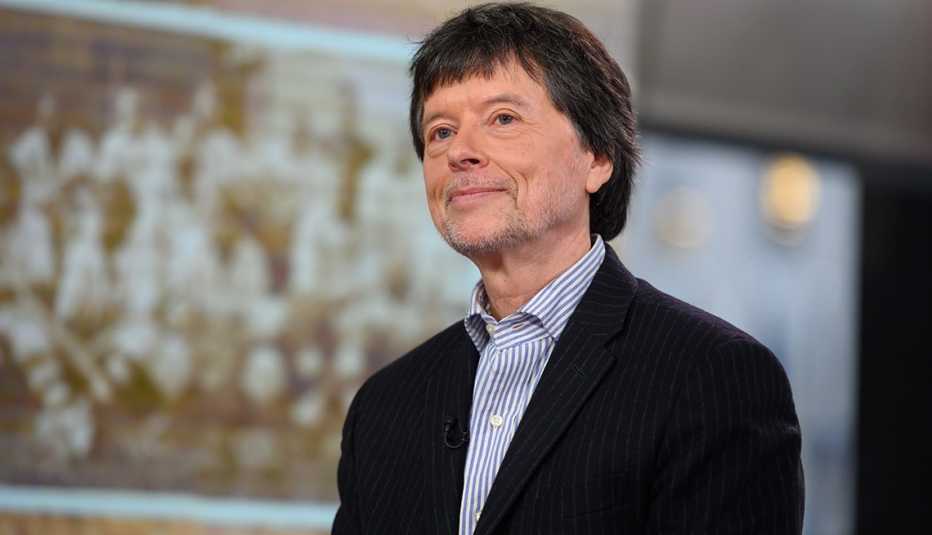Staying Fit
Just a few miles north of Orikhiv on Highway H08 lies the village of Tavriiske. There, the director of the Tavriiske Psychiatric and Geriatric Home, Oleksandr Starosvitskyi, faces a torturous decision. Since the war broke out, the state-run facility for older adults and the mentally and physically disabled has taken in more than a dozen evacuated older Ukrainians who — with their families gone — are in desperate need of shelter and care. They joined the burgeoning number of older Ukrainians “orphaned” by the war with Russia.
For Part 1, see: War’s Terrible Toll on Ukraine’s Elders


AARP Membership— $12 for your first year when you sign up for Automatic Renewal
Get instant access to members-only products and hundreds of discounts, a free second membership, and a subscription to AARP the Magazine.
Now this home, with its 420 residents, is too close to the front lines. On one side is Orikhiv, already a target of shelling; on the other are two more villages directly in the line of fire. When and how can Starosvitskyi move his charges to safety?
“With the start of hostilities, it was clear that we had one issue: the evacuation of these people,” he says. “When the front line was somewhere in Melitopol, about 75 miles away, there was still some hope, but now it’s 6 miles away. And these are bedridden people, older people. How can we transport them? Who will look after them? They need round-the-clock care.”

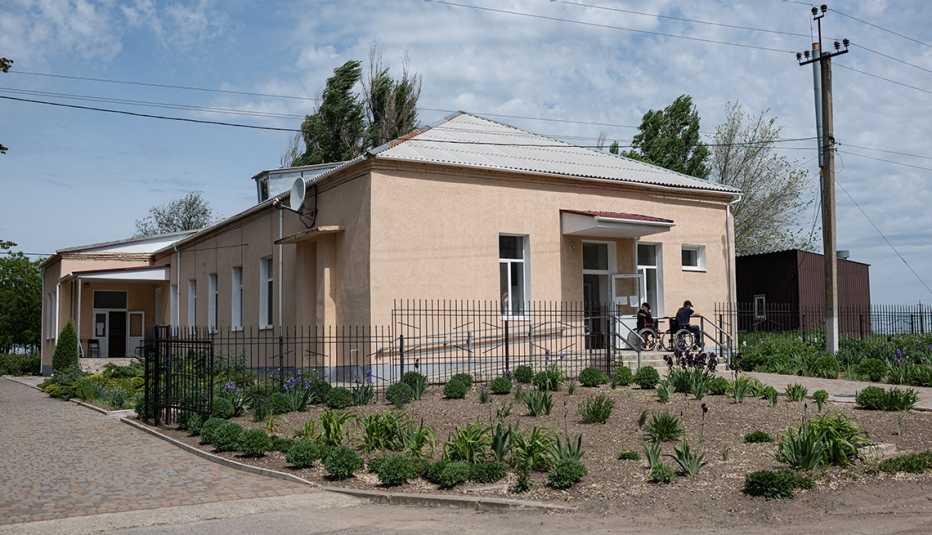
Set amid lush fields and groves of trees, the low brick and beige stucco buildings of the Tavriiske care and nursing home, continue to tell the troubled story of Ukraine’s tumultuous past century. Built as a district school, it sheltered homeless children during the Russian Revolution and civil war. In the 1930s it became a boarding school for orphans of the man-made famine engineered by Joseph Stalin; during 1941-42 it served as a military hospital. Since then, it has housed older adults and people with psychological and neurological disabilities from all over the region.

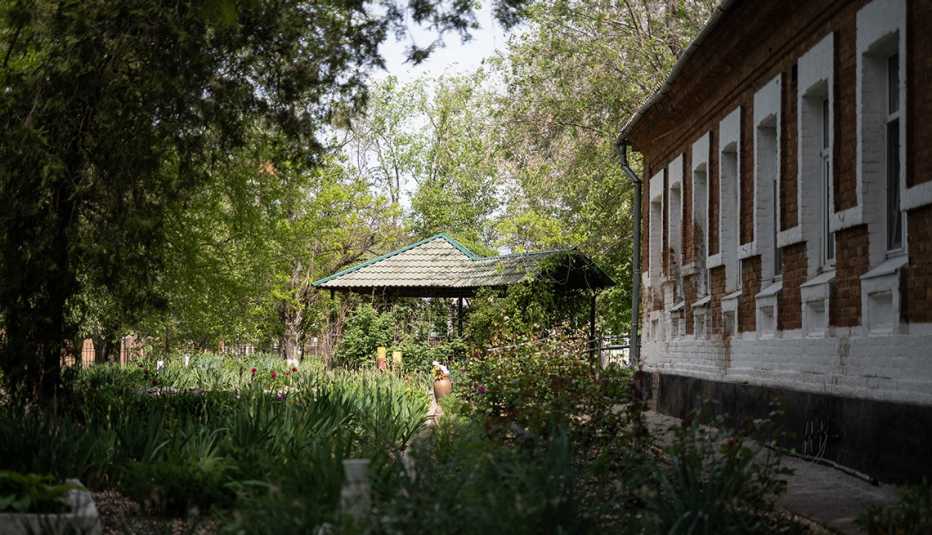
At first it’s hard to imagine this wrenching history. The home bustles with activity. The wheat and barley in the fields around the small, neat village is waist high. The care home’s gardens, maintained by residents, are bright with flowers. The open doors of the buildings admit fresh, fragrant breezes and the sound of birdsong.
The home employs 1 in 4 villagers. But its normal staff of 240 has been depleted by the 100 workers who have left for safer places. And the size of the institution, and the special needs of many residents, make it next to impossible to find a single alternative accommodation for them. With displaced people of all ages in Ukraine filling collective centers located in colleges, schools and other municipal buildings, there’s simply no space for those least able to help themselves: older Ukrainians.
At the time of our visit, in May, accommodations for only about 100 residents had been found in different towns. “That doesn’t cover everyone,” says Starosvitskyi, his voice edged with frustration. “I mean, you either evacuate everyone or no one.”
So, the issue is constantly being put off until tomorrow, though “there is a point of no return,” he concedes. And when is that point? “When they are 1 to 2 kilometers from us, then it will be too late. We understand this.”
The pull of inertia, hope and home runs deep — in the staff, the residents and even in Starosvitskyi himself. He is 62 and due to retire at the end of this year. It’s hard to imagine anyone wanting to take over his job as director of a care home in a war zone. He shrugs and smiles when I ask if he’ll really retire. He is tied to Tavriiske not just by his care-home charges but by his 84-year-old mother, who lives in her house in the village and needs two walking sticks to get about.
He had asked her to move with his wife to Zaporizhzhia, where his son also lives. “My mother said, ‘No. I won’t go.’ She said, ‘I won’t leave you here alone.’ And I said, ‘I won’t leave you here.’ ”
And what of the residents themselves? Everyone I spoke with had a story of transience and resilience, of tragedy and, occasionally, hope.

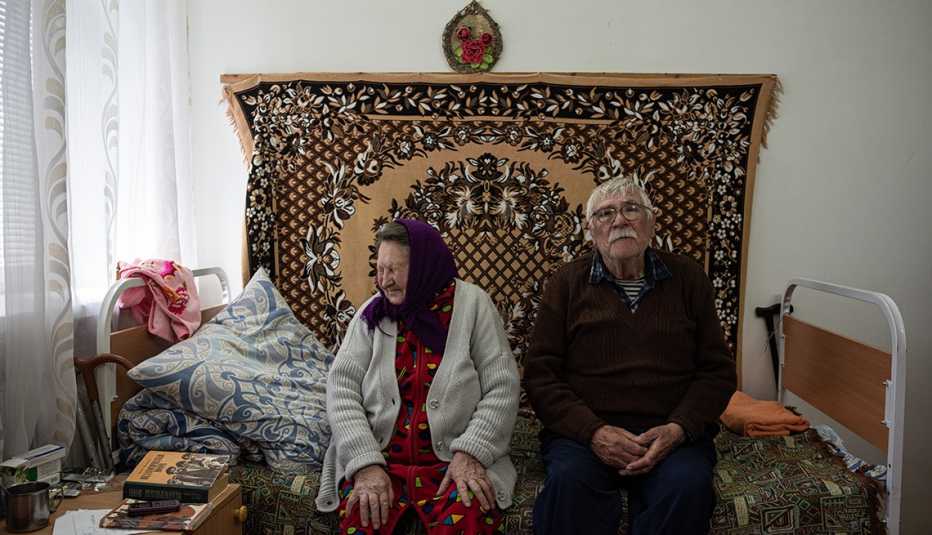
Volodymyr and Tatiana Kharchenko arrived in Tavriiske in late April. They had needed to flee their home in Mala Tokmachka, a nearby village that’s now right on the front line. They met in 1961, when he conspired to get a seat next to hers at a movie theater after he’d spotted her earlier at a dance — not knowing that she had noticed him as well. She was a Russian agronomist who had just been posted to his little town.



























































